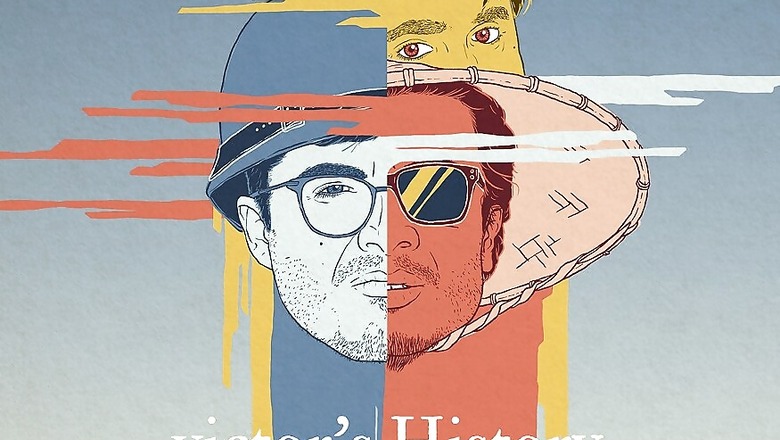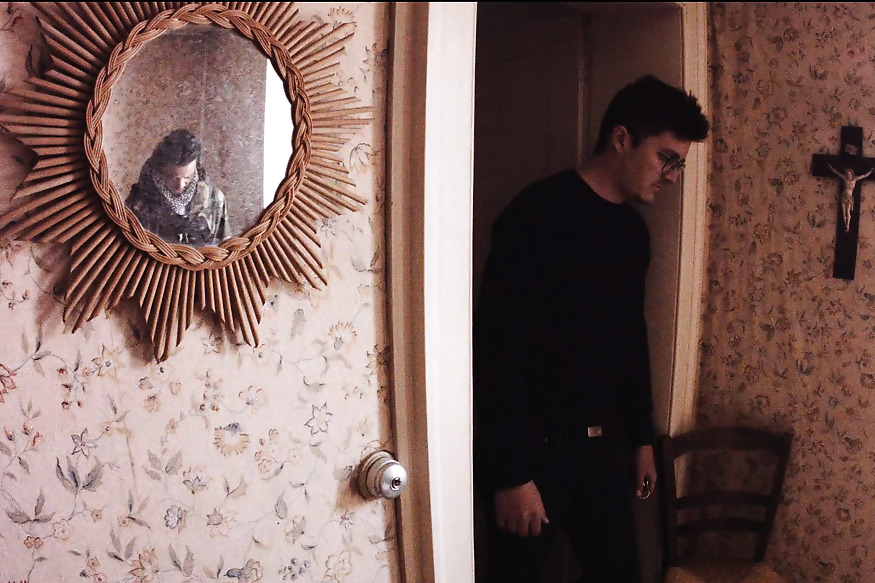
views
Over the years film festivals around the world have become a key place for experimental cinema to find its base and get a screen before it gets space on online streaming channels like Netflix or Amazon Prime. In the past decade, experimental films have found their own niche audience that not only appreciates the efforts put in by the makers in a small budget but also observe the technique used. The latest edition of Jio MAMI Film Festival saw an array of such films, one of the prominent films being Victor's History.
The film tells the story of a proud son who hires a documentary filmmaker to immortalize his father’s legacy. Tensions flare up between filmmaker and subject—and a rookie cameraman is caught in the crossfire—as the three travel across France unearthing threatening family secrets. Interestingly, the three actors in the film are the soul, mind, and body of the entire film. From being the writers to the director, camera person, and producers, the entire film has been made and framed by three individuals- Nicolas Chevaillier, Shoaib Lokhandwala, and Kev Clinsc.
News18.com caught up with the actor and director of Victor's House, Nicolas Chevaillier, and asked him about the interesting module of the film, the questions raised by the film and how he connects it all with the Indian audience. Here are the excerpts from the interview:
How did the idea of Victor's History come to your mind?
I was tired of waiting for studio backing on more ambitious projects and wanted to see if it was possible to make a film with no crew, on a self-funded micro-budget. I started with locations and the actors, who were graciously available to me, and I back-engineered the entire film around those elements. Now that the team was assembled, I thought it would be interesting to play with our vastly different backgrounds, and weave these socio-political themes into the fabric of the plot to give the film weight.

The film traces a debatable plot of colonialism and legacy, what were your thoughts on handling the subject?
At its core, the film is about power-dynamics. Victor has stacked the deck in his favor, and holds as much power as he can, for as long as he can. As Dorian wrestles that power from him, and Zuhair is forced to pick sides, we see Victor struggle with that shift, and his true colors come out. On a more macro scale, this is an allusion to the global shifting power dynamics of the last seventy years. The oppressed/colonized have come a long way in wrestling power back for themselves and being in charge of writing their own history, but there is a lot left to be done, and the oppressors are thrashing about, desperately trying to maintain the status quo and control the narrative. In Victor’s History, every plot point can be taken at face value, simply as a conflict between two or three people, or one can take a step back and frame that conflict in a much larger global and historical context.
Victor's History also deals with the concept of an identity crisis, being in a global world, this is one of the most relatable problems of the current generation. What do you feel about this?
Victor, Dorian, and Zuhair, all getting along, is a utopian and modern ideal. It’s hard to imagine their parents, or grandparents, doing the same. They all grew up on the same TV, the same music. They laugh at the same jokes. Superficially, this smoothes out the vast differences of their cultural upbringing and access to opportunities. In Victor’s History, we wanted to see what would happen when we pull back the curtain and force them to confront the sins of their fathers.

The camera acts as a narrator in the entire film. It's the voyeuristic gateway into the narrative. What do you have to say about this technique?
As the title suggests, the film plays a lot with the historical record and the idea that those in power get to shape their legacies as they see fit. In deciding to shoot in the found-footage style usually reserved for horror films, we are giving the audience a voyeuristic look behind the curtain. They are watching things unfold in real-time. Often, there is a sense that they are watching something they shouldn’t, and an uneasiness comes from that. We intentionally also went for a pre-edited look, as opposed to a traditional mockumentary narrative, so as to remind the viewer of the fragility of this record. At any moment, someone could remove unsavory parts of the video, and the truth would be lost forever, as has been done time and time again by the ruling elite.
The film has been made with just three people on board. What were the challenges that you faced while making the film?
Having only three people on set has its obvious drawbacks—there is no one to operate a microphone, or mix sound, or act as a script supervisor, or prepare lunch, or run errands—but it also has its benefits. It allowed for a certain flexibility and allowed us to quickly shift our shooting schedule around to accommodate changing weather (and a death in the family!). I look forward to having a crew on the next production, but we had so much fun on this project, that I wouldn’t rule out another crew-less project in the future.

Victor's History was recently screened at MAMI. What was the response of the Indian audiences who have seen their own history being distorted and re-written by colonies over centuries?
Unfortunately, I wasn’t able to attend the screening at MAMI, as I was representing the film in New Orleans (where it took the top prize for narrative features) but my producer, Shoaib Lokhandwala, tells me the response was very animated and positive. India, particularly, has an uphill battle when it comes to rewriting its own history. After so long, they have complete control over their own legacy, and how to frame the events of the past. This is a wonderful win for the country, and the world. However, Indians, just like everyone else, often lean headfirst into jingoism, and have a tendency to deify historical figures, ignoring elements that don’t favor the narrative of benevolence. Victor’s History takes a hard stance against the deification of individuals, so I imagine this film opens up an internal debate for all viewers, and how they fit into this mess.



















Comments
0 comment